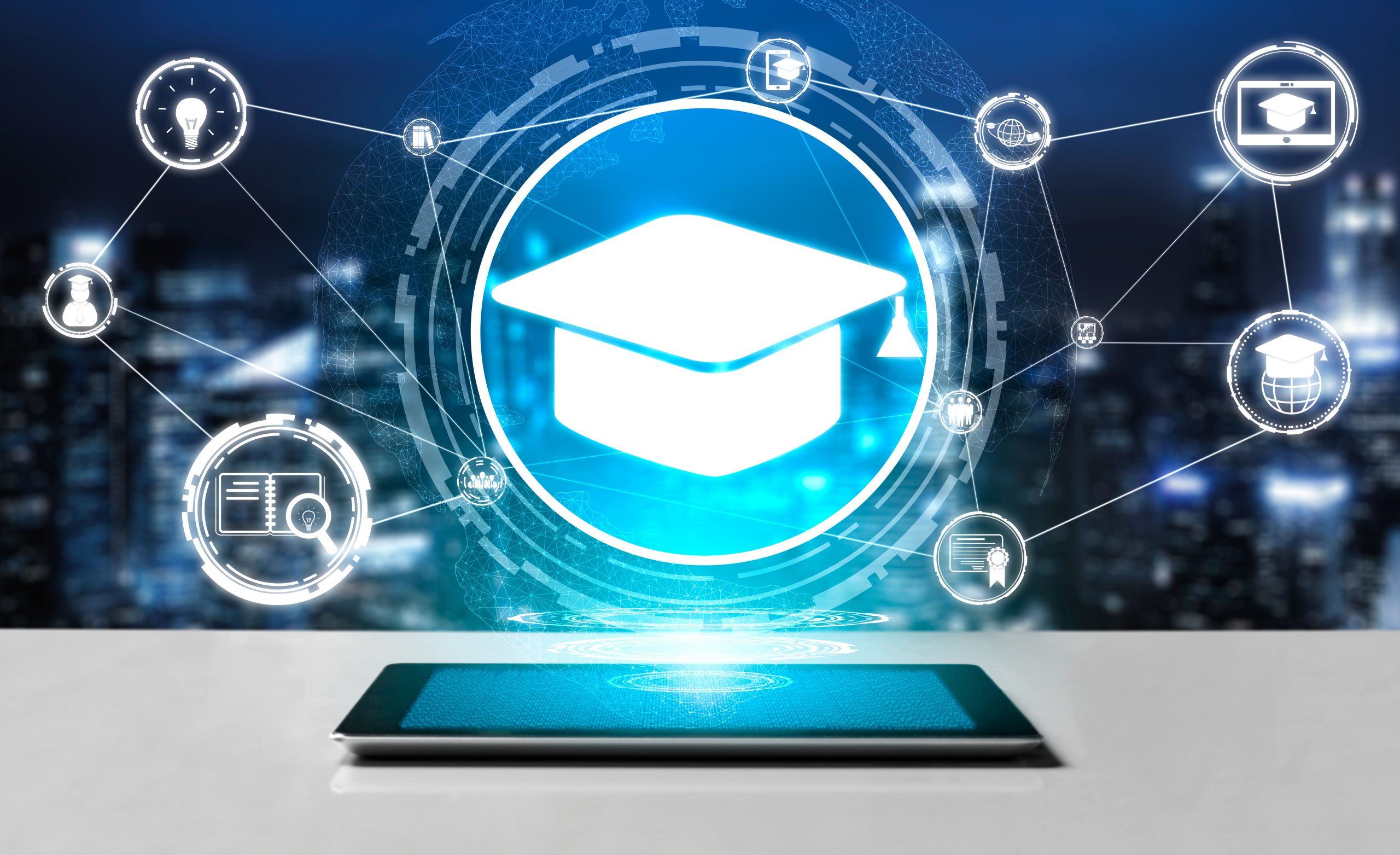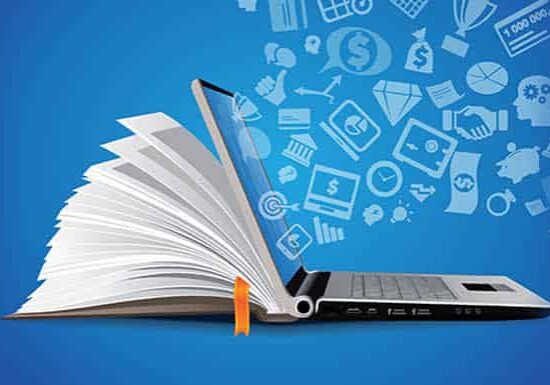Leverage Advanced AI Tools to Improve Performance and Efficiency
Leverage Advanced AI Tools to Improve Performance and Efficiency
Blog Article
The Duty of Innovation Education And Learning in Shaping Tomorrow's Labor force: Insights for Educators
As the landscape of employment remains to advance intoxicated of technological advancements, the role of innovation education ends up being progressively vital in preparing students for future jobs. Educators are charged with outfitting learners not just with technical effectiveness but additionally with vital soft abilities such as important thinking and partnership. By analyzing cutting-edge curricular approaches and promoting collaborations with market leaders, we can much better understand exactly how to effectively cultivate a labor force that meets the needs of an electronic economic climate. What approaches can teachers use to bridge the space in between education and market assumptions?

Value of Innovation Education
In an increasingly electronic globe, the relevance of innovation education can not be overemphasized. As markets develop and integrate innovative innovations, a well-rounded education and learning in innovation becomes crucial for both professional and individual growth. Innovation education and learning outfits individuals with the abilities needed to navigate the intricacies of modern offices, promoting adaptability in a setting characterized by fast modification.
Additionally, modern technology education promotes vital reasoning and analytic abilities. Education. By engaging with different technological devices and systems, students boost their ability to assess details, draw connections, and develop innovative solutions to real-world problems. This educational focus not only prepares students for specific careers but also cultivates a way of thinking that is crucial for long-lasting understanding
In addition, modern technology education and learning plays a crucial duty in linking the electronic divide. By supplying fair access to technological resources and training, schools encourage all pupils, despite socioeconomic status, to take part in the electronic economy. In conclusion, as we move even more into the 21st century, prioritizing technology education is vital for preparing an experienced workforce with the ability of growing in a progressively interconnected and technically driven global landscape.
Trick Abilities for Future Workforce

On top of that, proficiency in digital literacy is important; employees must navigate a selection of software application tools and systems effectively. Partnership abilities are likewise extremely important, as most modern workplaces emphasize teamwork across diverse, typically remote, settings. Moreover, imagination and development will certainly be essential in driving the advancement of new solutions and items in a competitive market.
Recognizing information analytics and cybersecurity concepts is significantly vital, showing the expanding significance of data-driven decision-making and safeguarding sensitive information. A foundational expertise of synthetic intelligence and machine knowing will equip future specialists to utilize these technologies efficiently.
Educators has to for that reason focus on the assimilation of these skills right into their modern technology educational program, ensuring pupils are well-equipped to satisfy the needs of a vibrant job market. By promoting these expertises, we prepare learners not just for their very first tasks, however, for lifelong professions in an ever-evolving technical landscape.
Integrating Modern Technology in Educational Program
Integrating innovation into the curriculum is crucial for modern-day education, with 85% of educators recognizing its significance in improving pupil involvement and learning outcomes. As technology continues to progress, schools have to adjust to prepare students for a future where digital literacy is critical. This integration involves not only using digital devices yet additionally the unification of cutting-edge sources that promote important reasoning, imagination, and partnership.
A well-structured innovation curriculum ought to line up with academic requirements while addressing the varied discovering requirements of trainees. This can include a mix of on the internet platforms, interactive software, and multimedia sources that provide to different knowing styles. In addition, instructors need to get ample training to efficiently apply these modern technologies, making sure that they are furnished to help with a highly enriched discovering environment.
Additionally, incorporating technology right into the educational program permits for real-world applications, bridging the void in between theoretical understanding and practical skills. By involving pupils with appropriate and immersive experiences, educators can grow a labor force that is not only technically skilled yet prepared and additionally versatile to meet the difficulties of tomorrow's work market. Emphasizing innovation in education and learning is not merely a have a peek at this website pattern; it is a need for shaping qualified future specialists.
Innovative Mentor Approaches
Accepting ingenious training techniques is vital for cultivating a engaging and efficient knowing setting in today's educational landscape. In technology education and learning, instructors have to employ methods that not only catch pupils' passion yet also equip them with the abilities essential for future professions. One efficient strategy is project-based knowing, which urges pupils to participate in real-world problems, advertising critical thinking and partnership.
Additionally, integrating gamification can boost motivation and retention, making intricate principles much more enjoyable and available. Education. Turned class, where trainees evaluate instructional content at home and take part in hands-on tasks throughout course, likewise confirm helpful by optimizing classroom interaction and application of expertise
In addition, using technology-enhanced knowing tools, such as simulations and digital labs, allows pupils to experiment and check out in a safe setting, cultivating advancement. Individualized learning experiences, tailored to recommended you read specific pupil needs and learning designs, can better enhance interaction and achievement.
Inevitably, by integrating varied and ingenious teaching methods, educators can develop a dynamic discovering environment that prepares pupils for the challenges of tomorrow's labor force, ensuring they are not only knowledgeable yet likewise versatile and proficient.
Cooperation With Industry Partners
Collaborating with market companions is essential for connecting the gap between education and learning and the workforce. Such partnerships give pupils with practical insights and experiences that are essential for their professional advancement.
Market collaborations can take several kinds, including teaching fellowships, mentorship programs, and visitor talks. These initiatives enable trainees to use their understanding in real-world contexts, cultivating a much deeper understanding of sector criteria and assumptions. These collaborations can lead to the development of specialized programs that deal with specific workforce needs, enhancing the importance of innovation education.
Additionally, sector companions can contribute sources, such as devices and funding, that enhance instructional offerings. By cultivating a culture of collaboration, educators and sector leaders can interact to grow a skilled labor force that is prepared to fulfill the challenges of tomorrow. Ultimately, these collaborations are important for creating a smooth transition from education and learning to employment, profiting both employers and pupils alike.
Final Thought
Finally, innovation education acts as a foundation for creating a skillful workforce with the ability of navigating the intricacies of a digital economic climate. By emphasizing important skills such as digital proficiency, imagination, and information analytics, educators can improve student readiness for varied profession possibilities. The integration of ingenious training techniques and cooperation with industry partners better enriches check the discovering experience, ensuring that trainees are not just equipped with understanding yet also prepared to satisfy the needs of an ever-evolving job market.
As the landscape of employment continues to advance under the influence of technological improvements, the duty of technology education ends up being significantly crucial in preparing trainees for future occupations. As sectors evolve and integrate sophisticated modern technologies, a well-rounded education in innovation comes to be essential for both expert and individual growth.Integrating innovation right into the educational program is crucial for contemporary education and learning, with 85% of instructors recognizing its significance in improving pupil engagement and learning results. In innovation education and learning, instructors have to use methods that not only capture students' interest however likewise furnish them with the skills required for future professions.In final thought, innovation education serves as a foundation for establishing a proficient workforce capable of navigating the complexities of a digital economic climate.
Report this page